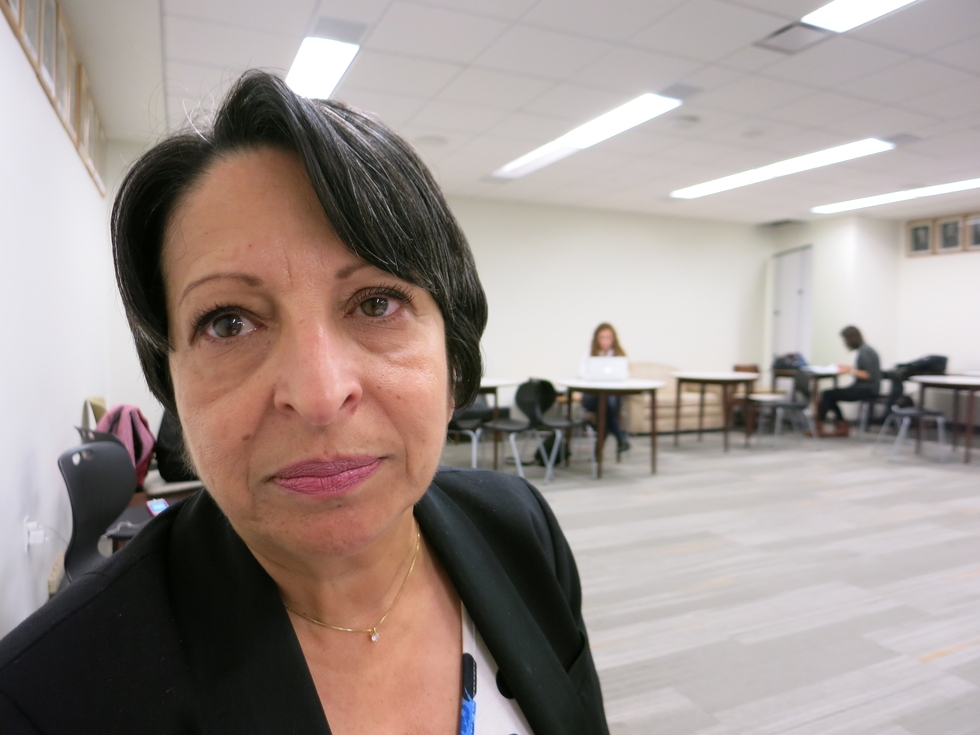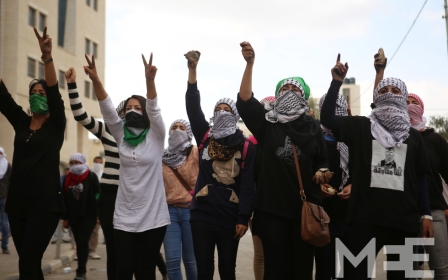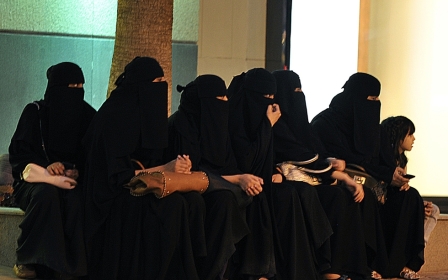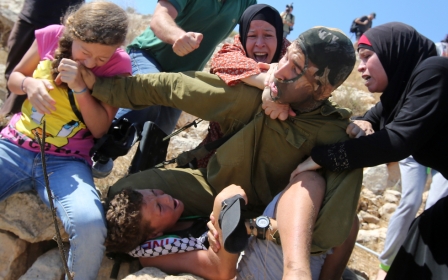Mideast women push for bigger role in tackling conflict
Peace activists say there is a region-wide problem of women not being able to play much-needed roles in peace talks

Lily Feidy, CEO of Miftah, the Palestinian Initiative for the Promotion of Global Dialogue and Democracy (James Reinl)
Published date: 14 October 2015 11:32 BST
|
Last update: 9 years 1 month ago
UNITED NATIONS, United States - Men have a poor track record in bringing peace to the Middle East. Could women do any better?
The answer to that question, according to women peace activists from the region, is an emphatic "yes," and on Tuesday they took their message to the UN Security Council and a global debate on women in peacekeeping.
One of them was Lily Feidy, who runs the Palestinian Initiative for the Promotion of Global Dialogue and Democracy (MIFTAH). Women struggle to get heard by the mostly-male leaders of Gaza and the West Bank, she said.
“Women have been victims throughout the Palestinian struggle, they are the breadwinners when the men are in prison or have been martyred. When there is an intifada, women are out there on the front lines,” Feidy told Middle East Eye.
“So why am I denied my right to speak and participate when the situation calms down?”
According to Feidy, Hamas, the group that runs Gaza, wants women “in the kitchen” rather than at the negotiating table. Mahmoud Abbas, president of the Palestinian Authority, only pays “lip service” to female involvement in politics, she said.
Men dominate Abbas’s Fatah movement in the West Bank and rarely let women take part in peace talks with Israel or in reconciliation negotiations with Hamas, she said. This is a shame, because women have plenty to offer.
“Women are more sensitive to the needs of their society, community and constituency. They better understand the needs of children, disabled people and other marginalised groups, and that’s why it’s important to include them,” she said.
The problem goes beyond Palestine. Feidy was joined at UN headquarters by campaigners from Libya, Syria, Iraq and Sudan who describe a region-wide problem of women not being able to play much-needed roles in peace talks.
They included Alaa Murabit, director of the Voice of Libyan Women, who campaigned for women’s rights in Libya even before the country descended into inter-militia chaos after the toppling of colonel Muammar Gaddafi in 2011.
“From my own experience in Libya, I know the only reliable requirement for admission to peace talks is a gun,” Murabit told the UN Security Council in New York on Tuesday.
Women were the first Libyans to warn that their country was collapsing into the chaos of religious extremism, she said. Having more women in politics and peace talks would make countries like Libya more stable, she added.
“Only by partnering with women and civil society organisations on the frontlines can we counter the rising threats of insecurity - be it extremism, resource exploitation, mass migration, global warming and any of the myriad causes of conflict,” she said.
She spoke during a day-long debate to mark the 15th anniversary of UN Security Council resolution 1325, which was passed on 31 October 2000 to get women more involved in peace talks, UN blue helmet missions and post-war rebuilding efforts.
It has seen some successes. Women were regularly consulted in only 50 percent of UN-backed peace processes back in 2011; that figure grew to 88 percent in 2014, according to a recently published UN report.
Women at the table
According to the study, called "Preventing Conflict, Transforming Justice, Securing the Peace," when women are at peace talks, the chances of a deal lasting at least two years increases by 20 percent, and by 35 percent over 15 years.
Also, countries where men and women are more equal are less likely to get sucked into wars with their neighbours, says the report, which was produced by the UN women’s expert Radhika Coomaraswamy.
Only 11 percent of peace deals even mentioned women or gender issues from 1990-2010. That has grown to half of all agreements, Phumzile Mlambo-Ngcuka, director of UN Women told the 15-nation council on Tuesday.
She cited peace deals in the Philippines and Colombia as examples of what can be achieved when women are more involved.
“The evidence shows us unequivocally that women need to be full participants at the peace tables, as negotiators and decision-makers in a much more inclusive process,” said Phumzile Mlambo-Ngcuka, director of UN Women.
“Women have to be able to control where resources are needed, for example to overcome trauma and the scars of war, or directing practical recovery matters like restitution of property and fields.”
Security Council members agreed to boost efforts towards involving women in peace talks.
UN Secretary-General Ban Ki-moon said he was working hard to tackle the dominance of men in UN peacekeeping missions and had appointed women as envoys to Haiti, Ivory Coast, Western Sahara, South Sudan and Cyprus.
He pledged to increase the amount of money spent on projects for women during post-war conflict and to tackle hard-liners in countries like Nigeria, Syria and Iraq that often set their sights on women.
“Groups such as Daesh and Boko Haram have mercilessly targeted women and girls,” he said, referring to the hard-line Islamic State group that controls swathes of Iraq and Syria.
“The systematic killings, torture, rape and sexual slavery by Daesh against the Yazidi community may amount to war crimes, crimes against humanity and genocide. We must ensure accountability.”
New MEE newsletter: Jerusalem Dispatch
Sign up to get the latest insights and analysis on Israel-Palestine, alongside Turkey Unpacked and other MEE newsletters
Middle East Eye delivers independent and unrivalled coverage and analysis of the Middle East, North Africa and beyond. To learn more about republishing this content and the associated fees, please fill out this form. More about MEE can be found here.




